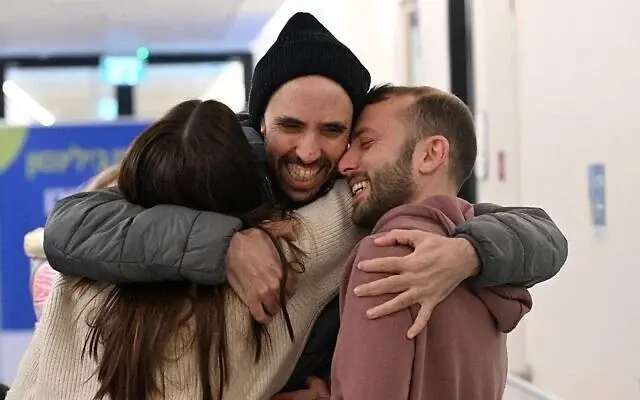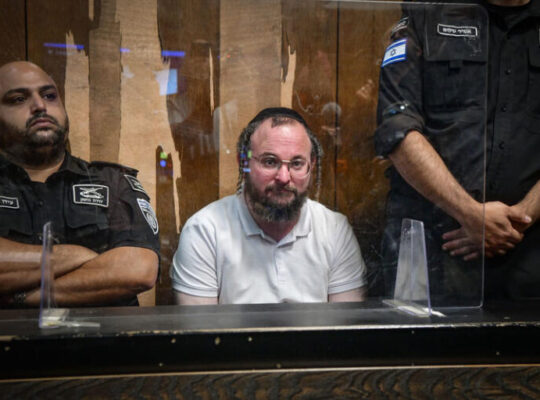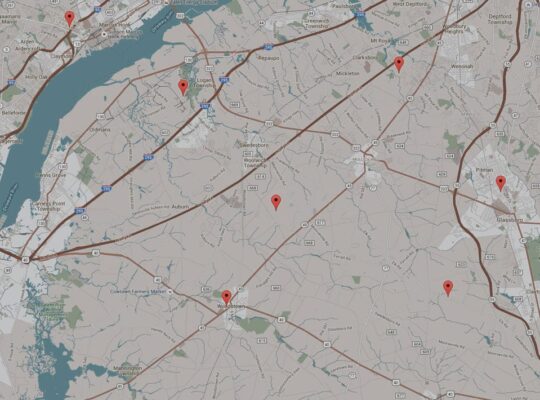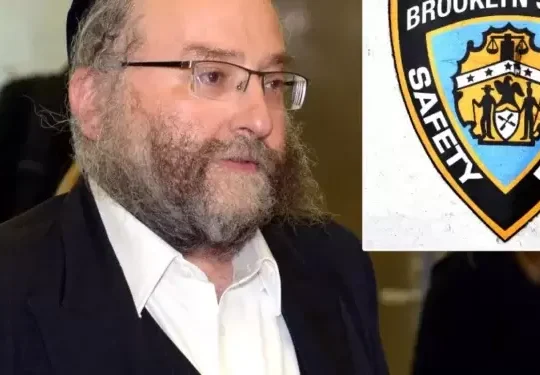TEL AVIV, Israel (AP) — Facing abusive Hamas guards, starvation, illness, and the fear of Israeli strikes, there were many moments during Tal Shoham’s 505-day captivity in Gaza when he doubted he would live to see another sunrise.
“There were many times I separated from life and tried to accept death,” Shoham, 40, told The Associated Press. “There are so many ways to die there.”
Yet against all odds, he survived — driven by hope, faith, and the enduring love for his family.
Abduction Under Fire
On October 7, 2023, while visiting relatives at Kibbutz Be’eri, Shoham and his family faced the unthinkable. As rockets rained down and Hamas militants infiltrated their kibbutz, the family huddled inside a safe room, praying it would withstand the attack. But when militants used explosives to breach their shelter, the Shoham family surrendered — a move Tal now credits with saving their lives.
Forced into a vehicle and driven across the border into Gaza, Shoham was separated from his wife and children. For days, he had no idea if they had survived the ordeal.
Captivity Above and Below Ground
Shoham spent the first part of his captivity in sparse Gaza apartments, confined to a small room, handcuffed, and subjected to physical abuse and mental torment. His captors fed him meager rations and often taunted him about Israeli suffering, using the massacre at a music festival — where hundreds were killed — as cruel psychological warfare.
After a month, Shoham was moved again and found himself imprisoned with two other Israeli hostages: Evyatar David and Guy Gilboa-Dalal. Forbidden from speaking, the three men developed a silent brotherhood, exchanging whispers and gestures to survive the psychological torture.
Determined to humanize himself in the eyes of his captors, Shoham began speaking Arabic, learning phrases to negotiate small comforts: a tin of tuna, an egg, a little kindness that could mean survival.
The Tunnel: Life Beneath the Earth
In June 2024, as Israeli operations rescued other hostages from above-ground sites, Shoham and his fellow prisoners were transferred to Hamas tunnels — an underground labyrinth estimated to be 30 meters (98 feet) deep. The air was stale, the light nonexistent, and the sense of isolation overwhelming.
Confined to a 12-meter-long cell, sleeping on dirty mattresses next to a makeshift hole used as a toilet, Shoham’s health deteriorated rapidly. A festering leg infection left him unable to walk for weeks. It was only after an underground doctor administered vitamins that Shoham regained partial mobility.
Mindfulness exercises, learned years earlier from his wife — a psychologist — became his lifeline. “The only thing I had power upon was my inner life,” Shoham said. “I chose to protect it at all costs.”
Hope in a Letter
Fifty days into captivity, a rare moment of mercy came: Shoham’s captors delivered a letter from his wife, confirming that she and their children were alive and safe. The news renewed his spirit and strengthened his will to survive the ordeal — no matter how long it would last.
“That letter was my anchor,” Shoham said. “It made every beating, every hunger pang, somehow bearable.”
Freedom and the Path to Healing
Tal Shoham was freed alongside fellow hostage Omer Wenkert in February 2025 during the last release of living captives under a short-lived ceasefire. His release came at a devastating cost: over 270 Palestinians were killed in the Israeli operation that saved others before him, and the conflict reignited with fury.
Returning home, Shoham began the slow process of healing — physically and emotionally. He quickly regained 35 pounds (16 kilograms) but struggled to control an insatiable hunger triggered by months of starvation. His injured leg still requires medical care, but Shoham considers himself lucky: unlike many, he rarely suffers nightmares, drawing strength from his children’s laughter and unconditional love.
Today, Shoham is not only focused on personal recovery but also on advocating for the remaining hostages believed to still be held in Gaza. “If they are not released soon,” he warns, “they will die there.”
Further Reading:
Stay Connected
Follow us on Facebook | Subscribe to our YouTube Channel | Join our Jewish Bulletin Community Hub on WhatsApp
🕎 Join Our Jewish Bulletin Community Hub!
Welcome to the Jewish Bulletin Community Hub — a space created with heart for Jews around the world to connect, support each other, and share what matters.
✨ Post classified ads, promote services, share events, or simply be part of something bigger than yourself.
➡️ Join the movement: Jewish Bulletin Community Hub
➡️ List your business or event: JewishBulletin.online
Together, let’s build something meaningful — one post, one connection, one mitzvah at a time. ✡️🌐🕎🕍
🌍 Chesed Without Borders: Join the Global Kindness Movement
Get quick alerts about urgent Jewish donation campaigns, success stories, and community needs. Be part of the global kindness movement! 🌍🕊️ 👉 Join Chesed Without Borders Here











